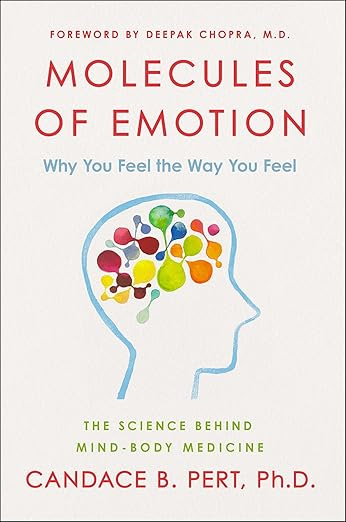The GCC exists to promote quality and ethical coaching practices, build meaningful connections with peers, and provide inclusive support for coaches across the world. We offer resources, activities, conversations, and collaboration needed for coaches to thrive.
Welcome to the latest installment of our ongoing series on personal growth, human development, and coaching books! At the GCC, we’re proud to have four active Book Clubs (in two languages!) where members come together to explore and discuss transformative reads.
Each club collaborates to review the books they read, sharing thoughtful feedback, key discussion points, and meaningful takeaways. Our book club leaders then distill these insights into a concise and engaging article, giving you a glimpse into the vibrant conversations happening in our community—and the incredible literature that inspires them.
We hope this series encourages you to dive into a great book, join the conversation, or even become part of one of our GCC Book Clubs (always included with GCC membership!). Wherever your reading journey takes you, we’re thrilled to have you along for the ride.
Happy reading!
The most recent book selection of the Pacific Time Zone Book Club, led by Shell Cowper-Smith and me, was Molecules of Emotion, by Candace Pert
Molecules of Emotion by Candace Pert
Candace Pert's Molecules of Emotion: The Science Behind Mind-Body Medicine is a groundbreaking exploration of the connection between emotions, biology, and health. Originally published in 1997, it remains a foundational work in the field of mind-body medicine, though it’s important to note that it is widely considered a classic book in this genre. Candace Pert, a renowned neuroscientist and pioneering researcher, passed away in 2013, leaving behind a legacy of work that continues to inspire both scientists and practitioners in related fields.
Key Themes:
The Science of Emotions: Pert introduces the concept of neuropeptides: Molecules that act as messengers between the brain and the body. These molecules are central to the communication network that links emotions to physiological processes. Her research reveals how emotions are not confined to the brain but are, in fact, experienced throughout the body. This is a complex process but an undeniable one.
Mind-Body Connection: The book emphasizes the inseparability of mind and body, challenging the traditional dichotomy in Western medicine. Pert demonstrates how emotional health can directly influence physical health, offering scientific support for holistic and integrative approaches to healing.
Personal Journey: Alongside her scientific insights, Pert shares her struggles and triumphs as an ambitious woman in a male-dominated field. Her personal anecdotes add a human touch to the scientific narrative, making the book both informative and eye-opening. There is a LOT of political game-play in science funding, and that is laid bare for the readers. She also weaves in the story of her perspectives and experiences with her own spiritual growth expanding over the years.
Implications for Medicine: Pert advocates for a shift in medical practice to incorporate emotional and spiritual well-being as integral components of health. She discusses the potential of alternative therapies, such as meditation, acupuncture, and mindfulness, in addressing the root causes of disease.
Strengths:
Engaging Blend of Science and Storytelling: Pert balances technical discussions with personal anecdotes, making complex topics accessible and engaging.
Innovative Perspective: The book offers a fresh (at the time) look at the interplay between emotions, the brain, and the immune system, bridging gaps between science and spirituality. This book holds up to the test of time in terms of the perspectives and insights shared.
·Inspirational: Pert’s narrative of breaking barriers in science as a woman is inspiring and thought-provoking.
Criticisms:
Overreach in Conclusions: Some critics argue that Pert occasionally extends her conclusions beyond the evidence, particularly when discussing alternative medicine.
Dense Scientific Content: While the book is a fairly quick read, parts of it can feel dense for readers unfamiliar with biochemistry or neuroscience.
Key Takeaways for Life Coaching:
Molecules of Emotion offers valuable insights directly applicable to life coaching and the coaching profession. Pert’s work highlights the profound link between emotions and physical well-being, supporting the idea that lasting change requires addressing both the mind and the body. Her findings align with change theory, underscoring how shifts in emotional states influence behavior and decision-making—key components of the coaching process. Additionally, Pert’s research reinforces the importance of fostering emotional awareness and resilience in coaching relationships, as well as the need to consider the whole person in any transformative work. For coaches, this book offers a scientific foundation for practices like mindfulness, emotional regulation, and somatic awareness, all of which play a role in helping clients achieve meaningful change.
Final Thoughts:
Molecules of Emotion is a must-read for those interested in the mind-body connection, integrative medicine, and the science of emotions.
For readers who enjoy Pert’s approachable yet thought-provoking style, her other works, such as Everything You Need to Know to Feel Go(o)d, and Your Body is Your Subconscious Mind, provide further exploration of the mind-body connection and practical strategies for well-being. Whether you’re a scientist, a coach, or simply a curious reader, this book will leave you with a greater appreciation for the profound connections between emotions and the body, and provide inspiration for applying these insights to your personal or professional life.








